Hamilton County to host ‘Spring Fling’ – Backyard Beekeeping
Join us March 18 to hear from Rich Stewart from the Ohio State Bee Keepers Miami Valley Region.
Read MoreIn 2022, the Ohio State Beekeeper Association saw a rise in the county level beginner beekeeping classes, which makes it evident that people want to learn how to properly care for bees.
As you’re driving down Ohio roadways you might notice more bright, beautiful boxes lining the yard of backyard beekeepers. In the past 10 years, Ohio has seen a steady increase in the growth of beekeeping — particularly in backyard beekeeping.
Honey production is usually the first thing that crosses someone’s mind when it comes to beekeeping; however, the more recent popularity is driven by pollinator services, a controlled way of ensuring bee pollination of crops.
Peggy Garnes, president of the Ohio Beekeepers Association and Medina County Farm Bureau member, is more than just a hobbyist beekeeper. She’s considered a “sideline,” which means she has enough hives —140 of them — to produce a side income. Garnes has been beekeeping for 25 years and has hives spread out throughout four counties in Ohio, many providing pollinator services.
“Instead of relying on commercial, out of state beekeepers, a lot of the Ohio beekeepers have stepped up to do a better job for pollination services,” said Garnes.
Everything bees produce is beneficial, from the honey they make to their pollination abilities. More than 80% of human food is supplied by plants, and that’s why it’s so important to care for these tiny but mighty creatures.
“A lot of times people want to help the honey bees and they think that they should get a beehive,” said Garnes. “You know, if you don’t have the time to correctly manage it, then it would be better to participate by planting more forage.”
To a passerby, those beehives may look nice and easy to maintain; however, beekeepers, especially new ones, are in their hives every week for about an hour per hive.
“That’s a lot of time commitment, especially for busy families,” said Garnes. “Bees are not like goldfish in a bowl that you just look at every once in a while.”
One of the hardest parts of the past few years, due to the COVID-19 pandemic, is that beginner beekeepers haven’t had good mentoring opportunities and the beginner classes were not held in person. Virtual learning can be helpful, but it’s not the same as actually getting in hives with an experienced beekeeper, said Garnes.
In addition, the bees have a lot of things working against them, such as viruses, pesticides and mites. Garnes is a staunch advocate of registering and inspecting hives, a process which helps limit the spread of disease.
“Our inspection program in Ohio is great,” said Garnes. “These inspections help those new to beekeeping tremendously by pointing out what you’re doing well, areas to improve and instances where you may need to call your mentor.”
Just like in many other areas of agriculture, education is a key component to successful beekeeping. In 2022, the Ohio State Beekeeper Association saw a rise in the county level beginner beekeeping classes, which makes it evident that people want to learn how to properly care for their bees.
There was a time where beekeepers were losing 60% to 80% of their hives every year. More recently throughout the state, that number has decreased to 47%.
“Most of my focus in the last 12 to 15 years has been on breeding better Ohio bees and queens so that we can work on that 47% loss,” said Garnes. “We can do better than that.”
Garnes recommends planting pollination plots, shrubs or trees that the bees can use.
Planting the correct supportive plants will help increase the honey production, and possibly even more important, provide bees with the nutrition they need to survive the winter season.
Garnes looks forward to continuing to educate in any way she can, but is most excited about opportunities to share her experience and knowledge with younger generations.
“This year I get to help coordinate the state fair. The honey bee section will be in the youth center building right by the 4-H and the Boy Scouts,” said Garnes. “I think that’s a perfect niche to get this information out to the children and to the parents.”
Online extra: Learn more about the basics of beekeeping with Ohio Farm Bureau Policy Counsel Leah Curtis on this episode of Legal with Leah.
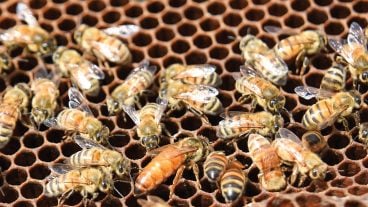
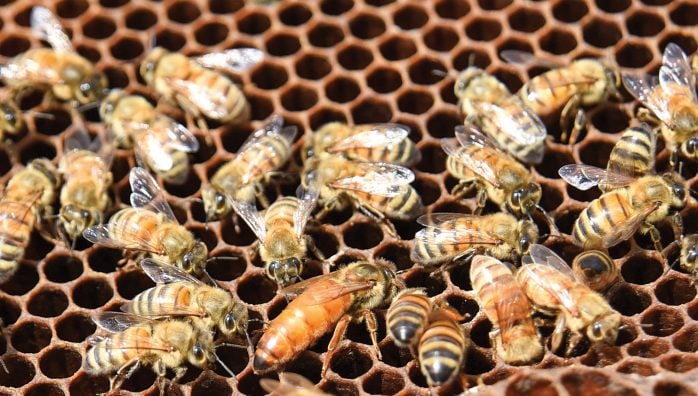
Join us March 18 to hear from Rich Stewart from the Ohio State Bee Keepers Miami Valley Region.
Read More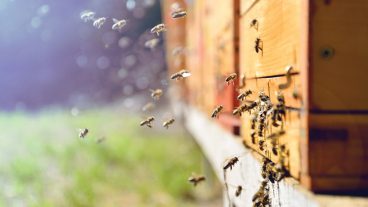
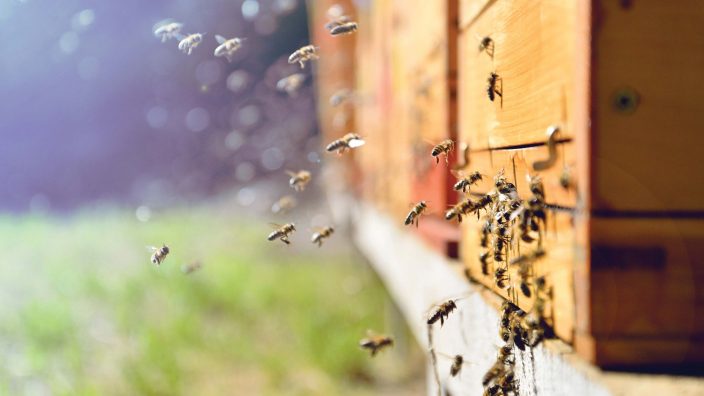
Beekeepers need to be very clear about the goals of their business endeavors with all parties, including their insurance agent, no matter how big or small the bee farm is.
Read More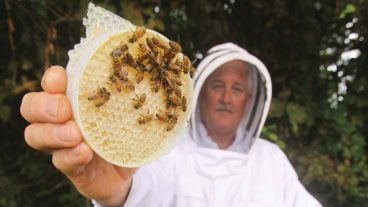
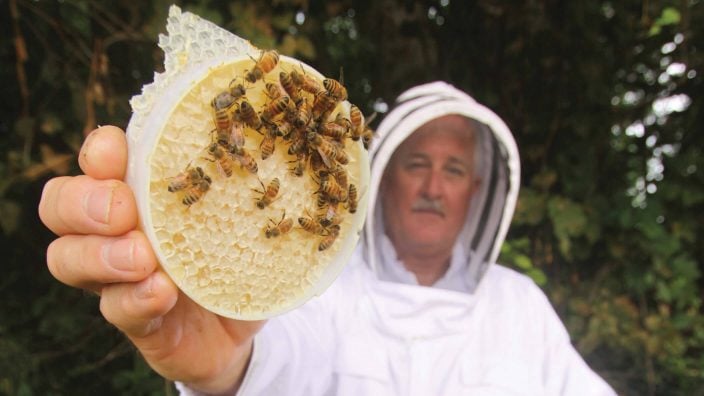
Bill and Bonnie Stein have used their experience and knowledge to educate and help other beekeepers get started over the years.
Read More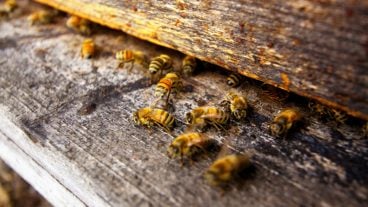
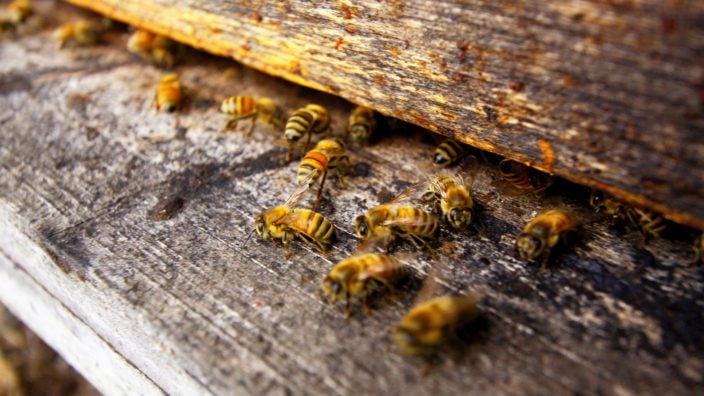
Ohio has seen a steady increase in the growth of beekeeping — particularly in backyard beekeeping.
Read More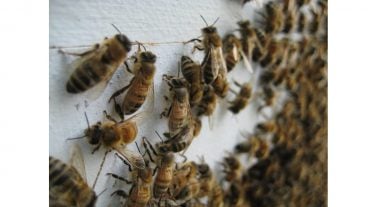
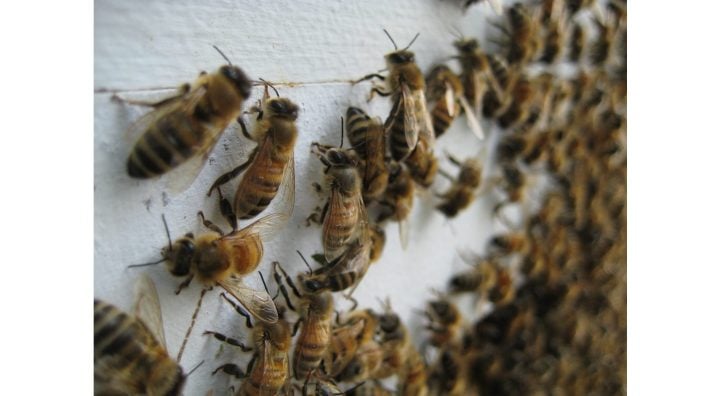
We’re excited to help these new beekeepers learn about beekeeping and the importance of it!
Read More

Jim Croskey uses cover crops – largely clover stands – on Dalroy Farms to improve soil health, as chopped forage for the cows, and as fodder for the honey bees.
Read More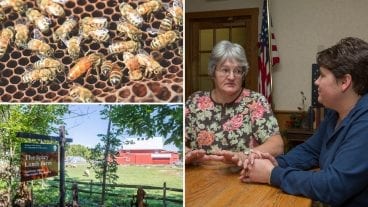
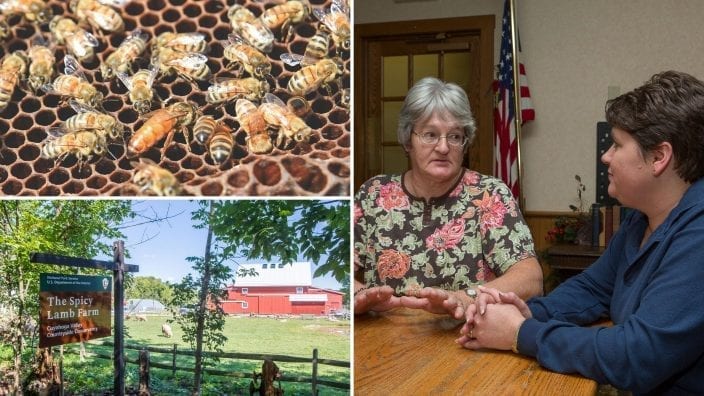
The summer council packet has two new discussion guides; both feature issues briefings directly from American Farm Bureau Federation policy….
Read More